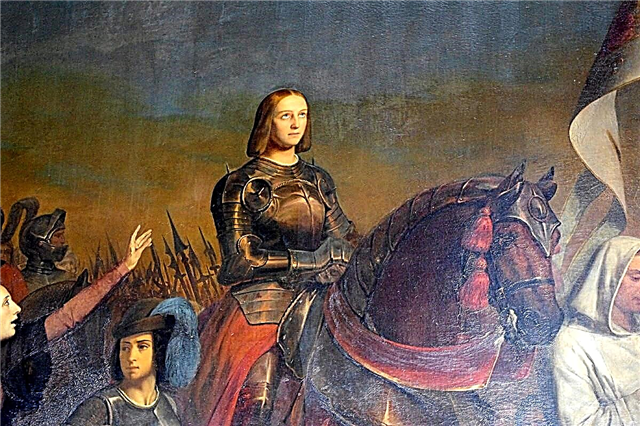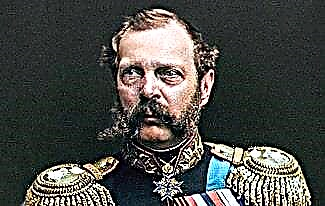At the end of the 18th and the first half of the 19th centuries, Russian literature made a powerful breakthrough in its development. In a matter of decades, it has become the most advanced in the world. The names of Russian writers became known throughout the world. Pushkin, Tolstoy, Dostoevsky, Gogol, Griboyedov - these are only the most famous names.

Any art exists outside of time, but at the same time it belongs to its own time. To understand any work, you need to feel not only its context, but the context of its creation. Unless you know that the Pugachev uprising was one of the biggest threats to the existence of the Russian state in its entire history, Pushkin's Captain's Daughter can be considered a tearful psychological drama. But in the context of the fact that the state can stagger, and the souls of people remain firm at the same time, the adventures of Pyotr Grinev look somewhat different.
Over time, many life realities change or are lost. And the writers themselves are not inclined to “chew on” details that are known to everyone at the time of writing. Something in the works of two hundred years ago can be understood by making simple inquiries. The fact that the “souls” are serfs or who is older: a prince or a count can be found in two clicks. But there are also things that require a little more research to explain.
1. It is interesting that the rather formalized etiquette of the Russian secular society and Russian classical literature appeared at about the same time. Of course, both etiquette and literature existed before that, but it was at the end of the 18th - first half of the 19th centuries that they began to spread especially widely. So the rudeness of other literary characters like Taras Skotinin or Mikhail Semyonovich Sobakevich can be explained by their ignorance of the intricacies of etiquette.

2. At the beginning of Denis Fonvizin's comedy "The Minor" Mrs. Prostakova chastises the serf for a poorly sewn caftan. The clothes, apparently, are really badly sewn - even the improvised master himself admits this, and invites the mistress to turn to a tailor who is taught to sew. She retorts - all the tailors learned from someone, what's the tricky part? She does not hesitate to call the arguments of the serf “bestial”. This scene is not an exaggeration of the author. All these French governesses, quafers, tailors, etc., could be afforded by a rather insignificant elite of the nobility. Most of the small landed nobles made do with proxies, dunks and frogs. At the same time, the requirements for home-grown craftsmen were high. If you do not correspond - perhaps to the stable under the whip.
3. Numerous episodes of forced marriage described in Russian literature, in fact, rather embellish reality. Girls were married off without knowing their opinion, without meeting the groom, in droves. Even Peter I was forced to issue a decree three times prohibiting marriage of young people without dating. In vain! The emperor, who led many thousands of armies into battle, before whom Europe was in awe, was powerless. For a long time in the churches, questions about whether young people want to get married and whether their decision is voluntary caused cheerful laughter in the far corners of the temple. Nicholas I, in response to a letter from his daughter Olga, who asked for a blessing for the marriage, wrote: only she has the right to decide her fate according to God's inspiration. It was almost free-thinking. Parents treated their daughters as their property or even capital - marriage was presented as salvation for elderly parents who were left without a piece of bread. And the expression “to protect youth” did not mean at all excessive concern for his beloved daughter. The mother of a girl, married at the age of 15, settled with the young and did not allow her husband to exercise his rights. The famous Petersburg playboy, Prince Alexander Kurakin, had acquired his reputation by the age of 26. Deciding to settle down, he allowed himself to marry the daughter of Princess Dashkova (the same friend of Empress Catherine, who is education, the Academy of Sciences, plays and magazines). Having received neither a dowry, nor a wife, Kurakin endured for three years, and only then ran away.

Vasily Pukirev. "Unequal marriage"
4. The plot of the story "Poor Liza" by Nikolai Karamzin is rather trivial. World literature is not deprived of stories about girls in love who did not find happiness in love for a person from another class. Karamzin was the first author in Russian literature to write a hackneyed plot from the standpoint of romanticism. The suffering Lisa evokes a storm of sympathy from the reader. The writer had the imprudence to fairly accurately describe the pond in which Lisa drowned. The reservoir has become a place of pilgrimage for sensitive young ladies. Only, judging by the descriptions of contemporaries, the strength of this sensitivity was exaggerated. The morals of the representatives of the nobility are widely known through the same adventures of A.S. Pushkin or his contemporaries, the Decembrists. The lower circles did not lag behind. In the vicinity of large cities and on large estates, the rent rarely exceeded 10-15 rubles a year, so even a couple of rubles received from a gentleman who wanted affection was a great help. Only fish was found in the ponds.
5. In the poetic comedy by Alexander Griboyedov "Woe from Wit", as you know, there are two little related storylines. Conventionally, they can be called "love" (the triangle Chatsky - Sofya - Molchalin) and "socio-political" (Chatsky's relations with the Moscow world). With the light hand of V.G.Belinsky, more attention is initially paid to the second, although the triangle is much more interesting in its own way. During the years of writing the comedy, marrying a more or less noble girl became a problem. Fathers confidently squandered their fortunes, leaving no dowry for their daughters. Known replica of one of A. Pushkin's friends, picked up by the light. When asked who married the orphan NN, she answered loudly: "Eight thousand serfs!" Therefore, for Sofia Famusov's father, the problem is not that the promising secretary Molchalin spends his nights in his daughter's bedroom (I must say, chastely), but that it seems like Chatsky, who knows where he spent three years, suddenly returned and confused all the cards. Famusov has no money for a decent dowry.
6. On the other hand, the abundant supply of brides in the marriage market did not place men in a privileged position. After the Patriotic War of 1812, many heroes appeared. But the practice of Catherine, who added hundreds, if not thousands of souls to the awards, ended long ago. Hanging with orders and honorary weapons, the colonel could easily make a living. The estates gave less and less income, and were mortgaged and re-mortgaged. Therefore, the parents of the "dowries" did not particularly look at ranks and orders. General Arseny Zakrevsky, who showed himself well during the war, and then worked as the chief of military intelligence and deputy chief of the General (General) Staff, intended to marry one of the representatives of the numerous Tolstoy. For a girl named Agrafena they gave 12,000 souls, so in order to get married, it took a personal matchmaking of Emperor Alexander I. But the famous general Alexei Ermolov, after he could not marry his beloved girl due to his “lack of fortune”, left attempts to start a family, and lived with Caucasian concubines.
7. “Deromantization” is a brilliant term coined by critics to describe A. Pushkin’s story “Dubrovsky”. Say, the poet deliberately vulgarized his hero, describing his endless Petersburg drinking, cards, duels and other attributes of the unbridled life of the guards. At the same time, Troekurov's prototype was also deromantized. Tula and Ryazan landowner Lev Izmailov for more than 30 years tortured his serfs in every possible way. Izmailov was one of those who were called "the throne support" - with one hand he marked the serfs to death, with the other he formed a militia for his own million rubles and he himself climbed under the bullets and buckshot. The devil himself was not a brother to him, not like the emperor - when he was told that Nicholas I had forbidden to punish serfs with iron, the landowner declared that the emperor was free to do whatever he wanted on his estates, and he was the master of his estates. Izmailov behaved in a corresponding way with his neighbors-landlords - he beat them, dumped them in feathers, and it was a trifling matter to take away the village. The capital's patrons and the purchased provincial authorities covered the tyrant for a long time. Even the emperor's orders were openly sabotaged. When Nikolai became furious, no one seemed to have enough. Everything was taken from Izmailov, and bureaucrats also got it.
8. Almost all literary heroes-officers who have risen to high ranks, in the eyes of the reader, after a few decades, look older than the writers intended. Let us recall the husband of Pushkin's Tatiana, the heroine of Eugene Onegin. Tatiana married a prince, and it seems that this is a man of advanced years. He didn't even get a surname, so, "Prince N", although there are enough names and surnames in the novel. Pushkin, having devoted at most a dozen words to the prince, never mentions that he was old. High birth, high military rank, importance - this is what the poet mentions. But it is the general rank that gives the impression of old age. Indeed, in the paradigm we are used to, an officer needs many years to reach the rank of general, even if one does not take into account the well-known anecdote that a general has his own son. But at the beginning of the 19th century, beardless youths were quite themselves, by today's standards. The Hermitage has a huge collection of portraits of the heroes of the 1812 war. They were painted by the Englishman George Doe, commissioned by Alexander I. In these portraits, old men like Kutuzov look like exceptions. Mostly young people or middle-aged people. Sergei Volkonsky, who received the rank of general at 25, or Mikhail Orlov, who was awarded the epaulettes of a general at 26, were considered young people who made a good career, no more. And Pushkin's friend Raevsky received the general at the age of 29 for granted. After all, they were all enrolled in the regiments from infancy, the length of service was enough ... So Tatyana's husband could well be older than his wife by only a few years.

Alexander Berdyaev became a major general at the age of 28
9. In A. Pushkin's story “Shot” there is a small episode, by the example of which one can understand the options for the military career of representatives of the nobility in Russia at that time. In the infantry regiment, in which Count B. serves, comes a young man belonging to an unnamed, but exceptionally noble family. He is brilliantly brought up and trained, brave, rich, and becomes a thorn and a rival for the count. In the end, it comes down to a sword fight. It seems to be a common thing - a newcomer to the regiment, a young thing, it happens. However, the background is much deeper. Natives of the highest nobility went to the cavalry guards or cuirassiers. They were the elite of the cavalry. Suffice it to say that all the equipment, starting with the heavy German horse, and ending with seven variants of the statutory form, was acquired by the guards at their own expense. But money did not solve everything - even for a small disciplinary act like opening the gate, one could easily fly out of the regiment. But it was possible to get to know the girl and her parents without mediation, which the rest were not allowed. The people, simpler and poorer, registered as lancers or hussars. Here are dozens of champagne from the throat, and peyzans in the hayloft - we live once. Light cavalrymen died in dozens in any battle, and their attitude to life was appropriate. But the lancers and hussars also had norms of behavior and concepts of honor. And, in any case, no one voluntarily switched from cavalry to infantry. And here is a representative of a prominent family, but in the provincial infantry regiment. They kicked out of the cavalry guards, did not stay in the uhlans either, and did not retire, preferring the infantry - a real, in modern language, outrageous. Here is Count B., himself, apparently, found himself in the infantry not from a good life, and got upset, sensing a kindred spirit.

10. Evgeny Onegin, as you know, had his own "lordly" exit. The coachman drove the horses, and a footman stood at the heels of the carriage. It was not a luxury like today's limousines. Only doctors, small capitalists and merchants could ride in parokonny carriages. All the rest moved only in fours. So Eugene, having gone to the ball in a hired steam-horse carriage, in some way shocked the audience. On foot, secular people could only walk. Even for a visit to a neighboring house, it was necessary to lay a carriage. The servants, according to their mood, either do not open the door for the pedestrian, or open, but leave the guest himself to take off and attach his outer clothing somewhere. True, this situation persisted until about 1830
11. After the premiere of The Inspector General, Nicholas I, as you know, said that he got the most in Nikolai Gogol's comedy. In defense of the emperor, it should be said that, firstly, unrestrained bribery and bureaucratic arbitrariness appeared in Russia by no means under Nicholas. Secondly, the emperor was well aware of everything and tried to fight both corruption and the dishonesty of the bureaucratic tribe. However, all his attempts were bogged down in the endless ranks of 40,000 clerks who, according to Nikolai himself, ruled Russia. Realizing the scale of the problem, the authorities tried to introduce it into at least some kind of framework. Gogolev's "not according to rank" is just from here. The governor scolds the quarterly - in the current realities it is the district one - because the merchant gave him two arshins (one and a half meters) of cloth, and the quarter took a whole piece (at least 15 meters). That is, it is normal to take two arshins. Quarters in provincial towns had a "left" income of up to 50 rubles a day (clerks received 20 rubles a month). Until the matter concerned the state budget, petty corruption turned a blind eye. And the theft of state money was often unpunished.
12. The naivete of the townsfolk in the 19th century reached the point that after the resounding success of the "Inspector General", some seriously decided that now the bribes were over. One of the liberals, who worked as a censor (!), A. V. Nikitenko, in his secret diary worried that now such a significant, in his opinion, force in the fight against autocracy as state theft would disappear. However, the experience of even limited in time and place of campaigns to restore order showed that if all the guilty were punished, officials would disappear as a class, and the work of the state apparatus would stop. And the system that arose during the war years penetrated the apparatus vertically. Bribes were taken directly to ministerial offices. Therefore, the mayor, if he was not like Gogol's Skvoznik-Dmukhanovsky, a person not noble and without connections was threatened with a maximum transfer to another area after a couple of years of formal retirement.
13. Gogol got to the point with the words of the mayor, addressed to the merchant: "You will make a contract with the treasury, you will inflate it by a hundred thousand, putting on rotten cloth, and then you will donate twenty yards, and give you a reward for that?" Over the years, it is impossible to understand whether corruption originated from below, or it was imposed from above, but it was fed, as they say, from the roots. The peasants began to complain about the same landowner Izmailov only when he, expanding his harem, generally forbade marriage in one of his estates. Before that, they gave their daughters into the caring hands of the owner, and nothing. And the merchants-characters of the “Inspector General” gave bribes with the hope that the provincial authorities would turn a blind eye to the rot and rubbish in government supplies. And the state peasants bought landlord peasants in order to surrender them secretly as recruits. So Nicholas I made a helpless gesture: punish everyone, so Russia will become depopulated.

Drawing by N. Gogol for the last scene of "The Inspector General"
fourteen.Postmaster Ivan Kuzmich Shpekin, who innocently retells other people's letters to the other heroes of The Inspector General and even offers to read someone else's correspondence, is not Gogol's invention. The society knew that the correspondence was being polished, and was calm about it. Moreover, immediately after the end of World War II, the future Decembrist Mikhail Glinka described in his memoirs with what pleasure he and other officers read the letters of the French prisoners to their homeland. This did not cause any particular indignation.
15. Russian classical literature is frankly poor in positive heroes. Yes, and those that are, sometimes look somehow alien. This is exactly what Starodum looks like in The Minor, who is not at all like the other characters. Such is the progressive capitalist Kostanzhoglo, who appears in the second volume of Gogol's Dead Souls. The writer put it into operation solely as a token of gratitude - the prototype of Kostanzhoglo, the Russian industrialist Dmitry Bernadaki, sponsored the writing of the second volume of Dead Souls. However, the image of Kostanzhoglo is not at all a panegyric. The son of a midshipman, having risen from the bottom, for 70 years of his life, he created entire industries in Russia. Vessels built and owned by Bernadaki sailed all over the Russian waters. He mined gold and made motors, and his wines were drunk all over Russia. Bernadaki earned a lot and donated a lot. His support was received by juvenile delinquents and prominent artists, inventors and gifted children. Here he is - the ready hero of the monumental novel! But no, Russian writers wanted to write about completely different personalities. Pechorin and Bazarov were nicer ...

Dmitry Bernadaki was not destined to become a hero of their time









